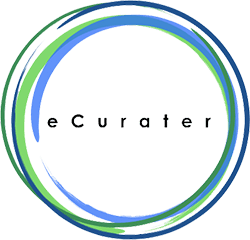Our Values Reflect Our Principles
eCurater engaged in scientific inquiry, reflection, and expression; facilitating knowledge sharing built on ethical principles such as Integrity, Transparency, Quality, fair practices and sharing mutual respect.
We expect our stakeholders to properly acknowledge their peers’ works and resort to honesty in an accurate depiction of citation and attribution. Our authors are always encouraged to share their creative scholarly works subject to policies and guidelines of eCurater. As your thoughtful works are perfect specimens of your values, personalities, and responsibilities; we would like to think that it has the potential to foster a genuine understanding, propensity for learning among our independent thinkers and scholars. Our highest standards at eCurater help the scientific community uphold the values that carry research.
We strongly discourage representing others’ works as your own, improper attribution, and presenting others ideas, fabricating data as your own, copying research information and quotations, etc.
We explicitly recognize any procedures, findings, and consequences as invalid concerning submitted drafts, or accepted papers if they are with any ulterior motive of gaining an unfair academic advantage.
We consider that the research presented in the submitted papers is in line with the legal and experimentation codes. The experiments should have been carried out in the most ethical and responsible manner. The submitted papers containing clinical trials on humans/animals have to be reported in the Methods section. The works involving human/animal subjects have to be formally approved by national, institutional committees and local bodies.
The research papers reporting any participants employed in the experiments, clinical trials; the authors are expected to obtain the Informed Consent which should be produced when the Journal requests for it. If a reviewer or editor has ethical concerns about patient consent forms, animal trials or possible fabrication of data in the manuscript; a proper investigation is carried out to ascertain that IRB approval is obtained and seek informed consent documents. The authors are expected to provide a satisfactory answer; otherwise, the review process is suspended and the article is retracted. If this particular concern raises any novelty ethical issues, it will be notified with COPE. The author’s institution is ideal to investigate or the employer can also be contacted to properly govern the research at the institute and any possible conclusion arrived be sought into the investigation after a period of 3 of 6 months. In this scenario, an Expression of Concern is published for our readers. In case of an unsatisfactory explanation from the institutes or employers, other authorities such as the medical registration body, UKPRI, ORI, etc. are contacted and the reviewer is informed of the outcome of the case.
Our editorial office is in full compliance with COPE core practices and guidelines. Our values address any complex ethical issues arising through the publishing process. And, our transparent guidelines and processes resolve complaints further. Our editorial staff equipped with proper systems in place is committed to attending requests from institutional investigations and constantly improvising the literature. Links to COPE guidelines, flowcharts, and other materials are supplemented in the website to inform authors, reviewers, and readers about submission, review, publication, and grievance. To address ethics issues COPE retraction guidelines, flowcharts, and access to legal advice are provided. We rely on our editors to resolve ethical issues, the methods, the time frame, parameters, involvement of legal staff are made clear.
Our editors always treat author submissions confidentially. They take accountability of what is published in our journals. They uphold the integrity of published records by supplying the authors with corrections and retractions; they duly report any scientific and research misconduct. Our Editors, reviewers and eCurater publishers always strive to stay away from biased treatment, breaching confidentiality, intentional delays, and plagiarism. We thoroughly check submitted manuscripts for any unethical research, plagiarism, selective reporting, and redundant publishing, image manipulation, inappropriate or ghost authorship and encourage research funders to honest reporting, prompt submission of manuscripts, unbiased treatment of findings, and are advised to be accessible to authors and to properly disclose their involvement in research.
